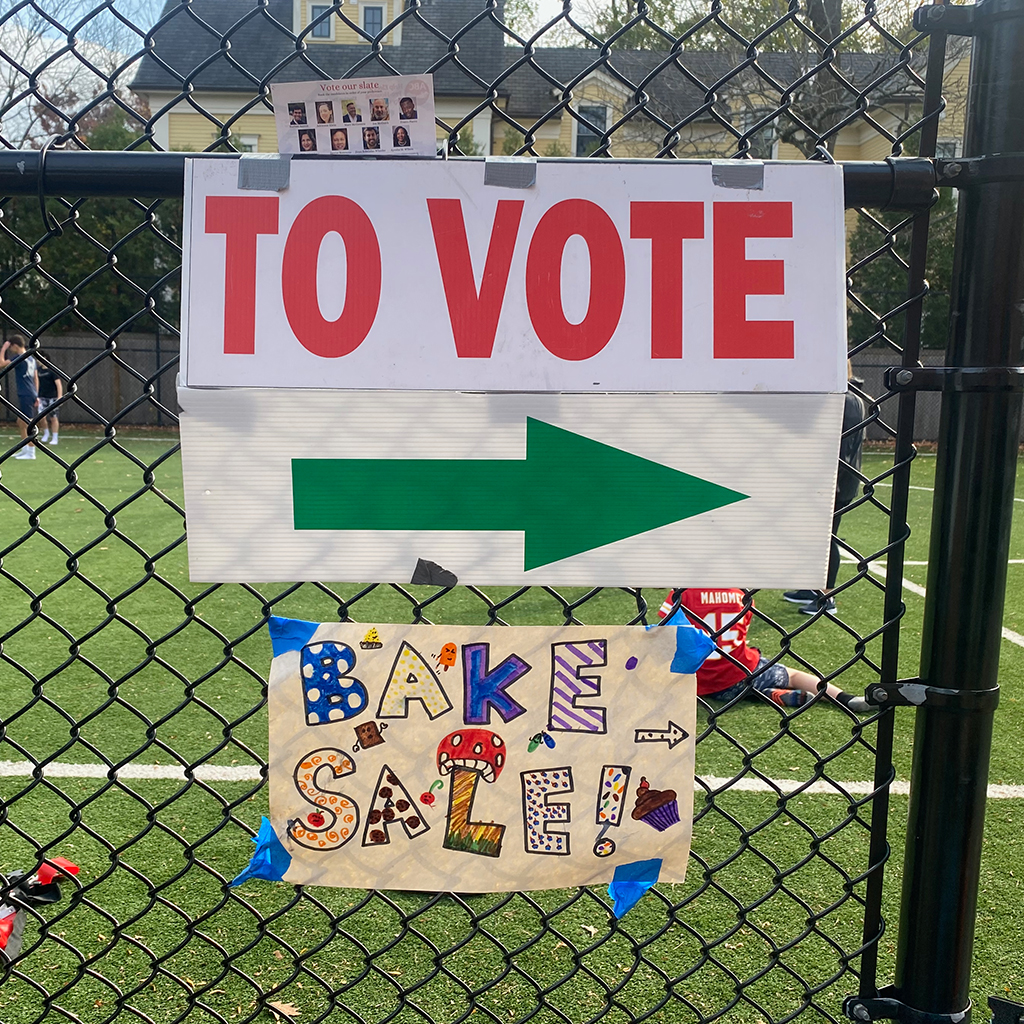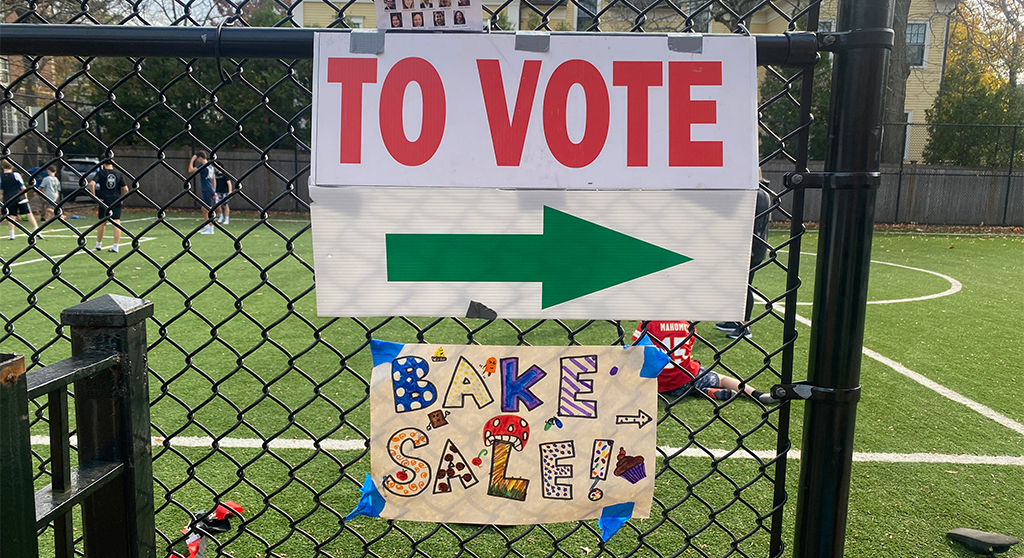
Marc Levy Election Day and bake sale signs share space Nov. 7, 2023, at the Graham & Parks School in Cambridge’s Neighborhood 9.
The Cambridge City Council is set to revisit a controversial plan to deploy automatic license plate readers, consider supporting statewide public financing for elections and discuss community meetings with Eversource to address rising heating and electricity costs. Here’s what to watch for in Monday’s meeting:
License plate readers: Police promises are on the agenda as the council returns to discussing automatic license plate readers, last before the body in September, and concerns that installing them risked people’s privacy and civil rights.
The plate readers are pitched to communities by the company Flock as helping find stolen vehicles and missing persons and supporting criminal investigations. Supporters including Cambridge police emphasize that the system’s purpose is not surveillance, but targeted law enforcement. Opponents warn that the tech’s ability to identify patterns could lead to preemptive surveillance and bias in enforcement – and note that the city is not the owner of the cameras, and the collected data could be stored or shared in national databases accessible by other jurisdictions and federal agencies involved in immigration enforcement.
The concerns have been discussed by the manager’s office, police, and Law and Information Technology department, city manager Yi-An Huang writes, acknowledging “times where collaboration between local governments and federal law enforcement has been severely strained.” Police promise that implementation will align with the city’s Welcoming Ordinance and Massachusetts Shield Law and be limited to legitimate public safety needs – not used for immigration enforcement or investigations related to legally protected activities such as reproductive or gender-affirming care.
Police promise strong data privacy and security measures and say the vendor they lease from undergoes annual audits. According to the report, the systems are isolated from the city’s network and reduce unauthorized access risks, and all data belongs solely to the city of Cambridge, with Flock having no ownership or unrestricted access. CPD does not share data with external agencies, including immigration enforcement, except under court order or subpoena, and Flock must notify the city of any such requests, police said.
To maintain transparency, police will conduct quarterly audits, publish public reports, log all data-access events and host community information sessions about privacy protections, officials said, while policy oversight continues through updates based on community input, legal changes and best practices. Access to data is role restricted, encrypted, securely stored and deleted automatically after 30 days if unused in investigations, they said.
Eversource: Concerns over rising electricity and heating bills – of particular concern as colder months approach – motivates a request for staff to bring in Eversource representatives for community meetings. A policy order from mayor E. Denise Simmons asks clarity from Eversource on the causes of rate hikes and to connect residents with affordability and hardship programs.
“These increases are particularly difficult for seniors, low-income residents and those on fixed incomes,” Simmons writes, “many of whom already struggle to afford basic living expenses and who may not be fully aware of what support options and assistance programs are available.”
There should be at least four public meetings in the coming weeks – at the senior centers in Central Square and North Cambridge, and others in locations that serve high-need populations.
Election funding: The council considers support for citizen-funded election campaigns to be implemented statewide, a bill scheduled for a Tuesday hearing on Beacon Hill.
Nearly $15 billion was spent on elections nationwide last year, making it one of the most expensive election cycles in history and showcasing the increasing influence that money has on politics. Public funding to counter the price tag of elections would be good for democracy, said the author of the policy order, councillor Jivan Sobrinho-Wheeler. “Particularly at the local level, these funds have been instrumental in allowing residents from underrepresented communities to run for office,” he writes.
Several communities across the country, including New Haven, New York City and Portland, Maine, have implemented public financing in local elections to empower the voices of small-dollar donors, increase voter outreach and get more people involved in local elections.
In Massachusetts, campaign finance laws cap individual donations for local elections at $1,000 but do not provide public matches for small-dollar donations. This, many argue, gives large donors a greater impact on local elections than small-dollar donors.
Publicly funded elections have been explored a few times in Cambridge but faced repeated setbacks. In 2016, the City Council gave a warm reception to studying a public financing system, though doubts remained about its practicality. A year later, reform advocates tried to place a nonbinding question on the city ballot to gauge voter support, but then-councillor Leland Cheung implemented a procedural objection that blocked it, effectively ending hopes for a 2017 vote. The council finally passed a campaign finance reform law in December 2021 that limits contributions from individuals and entities doing business with the city to $200 per candidate annually – stricter than the state’s $1,000 limit – and requires disclosure by applicants seeking city contracts or permits. Supporters called it a long-overdue safeguard against the appearance of pay-to-play politics, while some critics warned of vagueness and legal challenges.
The council meets at 5:30 p.m. Monday at City Hall, 795 Massachusetts Ave., Central Square, Cambridge. Televised and watchable online and by Zoom videoconferencing.


